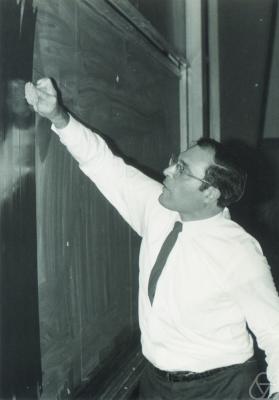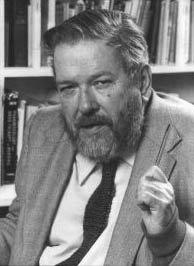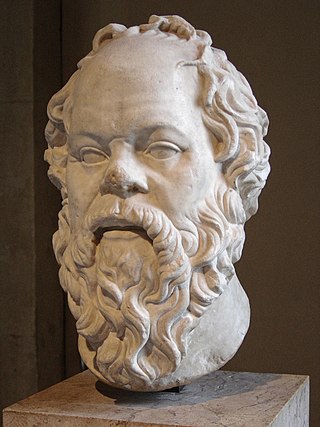
Daniel Clement Dennett III is an American philosopher, writer, and cognitive scientist whose research centers on the philosophy of mind, philosophy of science, and philosophy of biology, particularly as those fields relate to evolutionary biology and cognitive science.
The history of science and technology (HST) is a field of history that examines the understanding of the natural world (science) and the ability to manipulate it (technology) at different points in time. This academic discipline also studies the cultural, economic, and political impacts of and contexts for scientific practices.

Liberal arts education is the traditional academic course in Western higher education. Liberal arts takes the term art in the sense of a learned skill rather than specifically the fine arts. Liberal arts education can refer to studies in a liberal arts degree course or to a university education more generally. Such a course of study contrasts with those that are principally vocational, professional, or technical, as well as religiously-based courses.

Gian-Carlo Rota was an Italian-American mathematician and philosopher. He spent most of his career at the Massachusetts Institute of Technology, where he worked in combinatorics, functional analysis, probability theory, and phenomenology.

Patricia Smith Churchland is a Canadian-American analytic philosopher noted for her contributions to neurophilosophy and the philosophy of mind. She is UC President's Professor of Philosophy Emerita at the University of California, San Diego (UCSD), where she has taught since 1984. She has also held an adjunct professorship at the Salk Institute for Biological Studies since 1989. She is a member of the Board of Trustees Moscow Center for Consciousness Studies of Philosophy Department, Moscow State University. In 2015, she was elected a Fellow of the American Academy of Arts & Sciences. Educated at the University of British Columbia, the University of Pittsburgh, and Somerville College, Oxford, she taught philosophy at the University of Manitoba from 1969 to 1984 and is married to the philosopher Paul Churchland. Larissa MacFarquhar, writing for The New Yorker, observed of the philosophical couple that: "Their work is so similar that they are sometimes discussed, in journals and books, as one person."

George Parkin Grant was a Canadian philosopher and political commentator. He is best known for his Canadian nationalism, political conservatism, and his views on technology, pacifism, and Christian faith. He is often seen as one of Canada's most original thinkers.

Philosophy and literature involves the literary treatment of philosophers and philosophical themes, and the philosophical treatment of issues raised by literature.
In the philosophy of technology, the device paradigm is the way "technological devices" are perceived and consumed in modern society, according to Albert Borgmann. It explains the intimate relationship between people, things and technological devices, defining most economic relations and also shapes social and moral relations in general.
David Braine was a British analytic philosopher with interests in analytic philosophy of religion and metaphysics, who sought to marry the techniques and insights of analytical philosophy and phenomenology to the metaphysics of classical Thomism. His The Reality of Time and the Existence of God set out to prove the existence of God from the fact that the world enjoys continuity in time. He argued that nothing in the world could be the cause of this continuity, whence God came into the picture.
Gestell is a German word used by twentieth-century German philosopher Martin Heidegger to describe what lies behind or beneath modern technology. Heidegger introduced the term in 1954 in The Question Concerning Technology, a text based on the lecture "The Framework" first presented on December 1st 1949, in Bremen. It was derived from the root word stellen, which means "to put" or "to place" and combined with the German prefix Ge-, which denotes a form of "gathering" or "collection". The term encompasses all types of entities and orders them in a certain way.
The philosophy of technology is a sub-field of philosophy that studies the nature of technology and its social effects.

Herman Johan "Hans" Achterhuis is Professor Emeritus in Systematic Philosophy at the University of Twente, The Netherlands. For now his research concerns particularly social and political philosophy and philosophy of technology.
Robert Culp Stalnaker is an American philosopher who is Laurance S. Rockefeller Professor Emeritus of Philosophy at the Massachusetts Institute of Technology. He is a Fellow of the American Academy of Arts and Sciences and a Corresponding Fellow of the British Academy.
The philosophy of information (PI) is a branch of philosophy that studies topics relevant to information processing, representational system and consciousness, cognitive science, computer science, information science and information technology.
Albert Borgmann was a German-born American philosopher, specializing in the philosophy of technology. He was born in Freiburg, Germany, and was a professor of philosophy at the University of Montana. In 2013 Borgmann received the Golden Eurydice Award for his contributions to philosophy.

Eric Stowe Higgs is professor in the School of Environmental Studies at the University of Victoria. Trained in ecology, philosophy, and environmental planning, his work concerns ecological restoration, historical ecology, intervention ecology, and the changing character of life in technological society.

Andrew Feenberg is an American philosopher. He holds the Canada Research Chair in the Philosophy of Technology in the School of Communication at Simon Fraser University in Vancouver. His main interests are philosophy of technology, continental philosophy, critique of technology and science and technology studies.
Philosophy of design is the study of definitions of design, and the assumptions, foundations, and implications of design. The field, which is mostly a sub-discipline of aesthetics, is defined by an interest in a set of problems, or an interest in central or foundational concerns in design. In addition to these central problems for design as a whole, many philosophers of design consider these problems as they apply to particular disciplines. Although most practitioners are philosophers of aesthetics, several prominent designers and artists have contributed to the field. For an introduction to the philosophy of design see the article by Per Galle at the Royal Danish Academy.

American philosophy is the activity, corpus, and tradition of philosophers affiliated with the United States. The Internet Encyclopedia of Philosophy notes that while it lacks a "core of defining features, American Philosophy can nevertheless be seen as both reflecting and shaping collective American identity over the history of the nation". The philosophy of the Founding Fathers of the United States is largely seen as an extension of the European Enlightenment. A small number of philosophies are known as American in origin, namely pragmatism and transcendentalism, with their most prominent proponents being the philosophers William James and Ralph Waldo Emerson respectively.
Australian philosophy refers to the philosophical tradition of the people of Australia and of its citizens abroad. Academic philosophy has been mostly pursued in universities. It has been broadly in the tradition of Anglo-American analytic philosophy, but has also had representatives of a diverse range of other schools, such as idealism, Catholic neo-scholasticism, Marxism, and continental, feminist and Asian philosophy.









